Bangladesh Students Reject PM Olive Branch After Deadly Protests
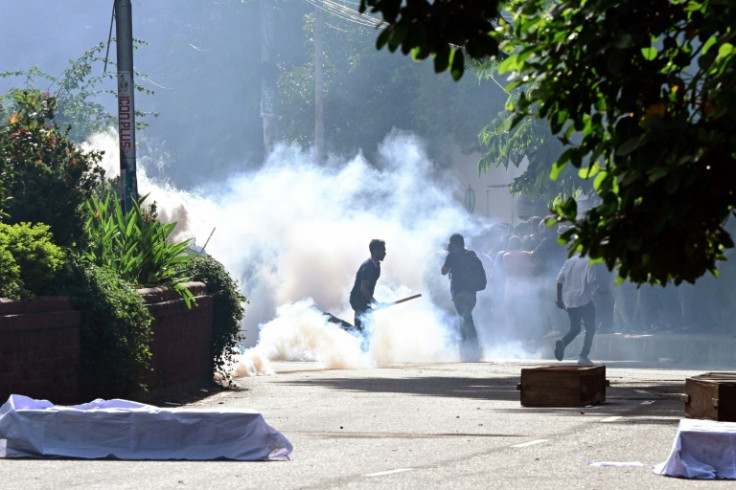
Bangladeshi students pressed on Thursday with nationwide protests against civil service hiring rules, rebuffing an olive branch from Prime Minister Sheikh Hasina who pledged justice for nine killed in the demonstrations.
Hasina's government has ordered schools and universities to close indefinitely and stepped up efforts to contain weeks of rallies demanding equal access to public sector jobs.
Riot police again fired tear gas and rubber bullets to disperse crowds of protesters on Thursday as the government ordered the shutdown of mobile internet networks to quell demonstrations.
Hasina condemned the "murder" of protesters in a televised address to the nation and vowed that those responsible will be punished regardless of their political affiliation.
But Students Against Discrimination, the main group behind this month's rallies, dismissed her words as insincere and urged supporters to press on.
"It did not reflect the murders and mayhem carried out by her party activists," Asif Mahmud, one of the coordinators of the protests, told AFP.
Fresh clashes broke out in several cities across Bangladesh throughout the day as riot police marched on protesters, who began another round of human blockades on roads and highways.
Police injured dozens of students by firing rubber bullets and tear gas canisters at a crowd of more than 1,000 people gathered at Bangladesh's top private university in the capital Dhaka.
"At the Brac University medical centre at least 25 students were treated for rubber bullet wounds and tear gas-related injuries," a university official, who spoke on condition of anonymity, told AFP.
"Rubber bullets hit several students in their eyes."
Bangladeshis reported widespread mobile internet outages around the country on Thursday, two days after internet providers cut off access to Facebook -- the protest campaign's key organising platform.
Junior telecommunications minister Zunaid Ahmed Palak told AFP that the government had ordered the network cut off.
He earlier told reporters that social media had been "weaponised as a tool to spread rumours, lies and disinformation", forcing the government to restrict access.
Two students were reported dead on Thursday after clashes in Uttara, a middle-class neighbourhood in Dhaka's north.
"They were brought from the clashes," Merina Parvin, a nurse at Uttara Adhunik Medical College hospital, told AFP.
She did not say whether they had died from police fire, but added that more than 100 other students were being treated at the hospital.
Police also announced the death of a protester the previous evening, conceding that police weaponry had killed the 18-year-old.
"He was hit by rubber bullets," police inspector Bacchu Mia told AFP. "He was brought to the hospital but died before he was admitted."
More than 500 others were injured in clashes around the country on Wednesday, while six people were killed on Tuesday.
In addition to police crackdowns, demonstrators and students allied to the premier's ruling Awami League have also battled each other on the streets with bricks and bamboo rods.
Hasina's speech did not assign responsibility for the deaths, but descriptions from hospital authorities and students suggest at least some died when police used supposedly non-lethal weapons on demonstrations.
Rights group Amnesty International said video evidence from clashes this week showed that Bangladeshi security forces had used unlawful force.
Clashes overnight included a battle on Dhaka's outskirts between police and more than 1,000 protesters who set fire to a roadside toll booth.
"We spent the whole night fending off attacks from the protesters," deputy police commissioner Iqbal Hossain told AFP.
Near-daily marches this month have demanded an end to a quota system that reserves more than half of civil service posts for specific groups, including children of veterans from the country's 1971 liberation war against Pakistan.
Critics say the scheme benefits children of pro-government groups that back Hasina, 76, who has ruled the country since 2009 and won her fourth consecutive election in January after a vote without genuine opposition.
Her administration is accused by rights groups of capturing state institutions and stamping out dissent, including by the extrajudicial killing of opposition activists.
Mubashar Hasan, a Bangladesh expert at the University of Oslo in Norway, said the protests had grown into a wider expression of discontent with Hasina's autocratic rule.
"They are protesting against the repressive nature of the state," he told AFP.
"Protesters are questioning Hasina's leadership, accusing her of clinging onto power by force," he added.
"The students are in fact calling her a dictator."
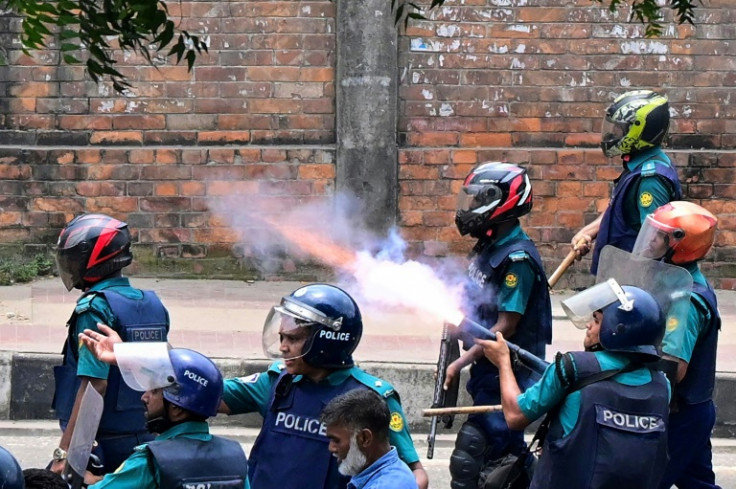
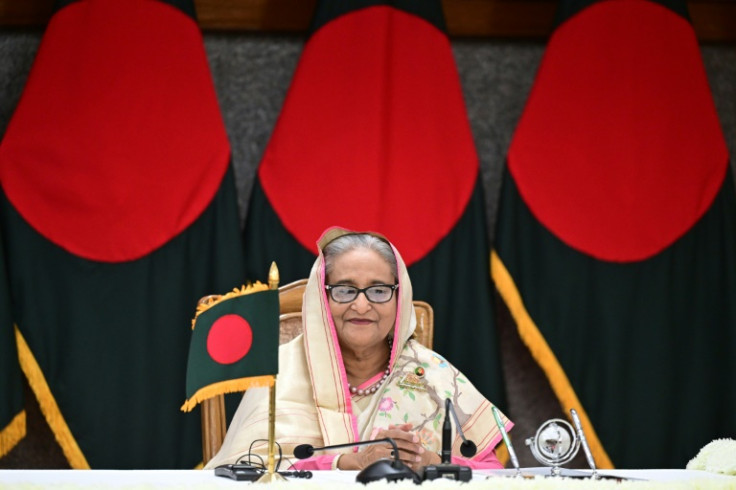
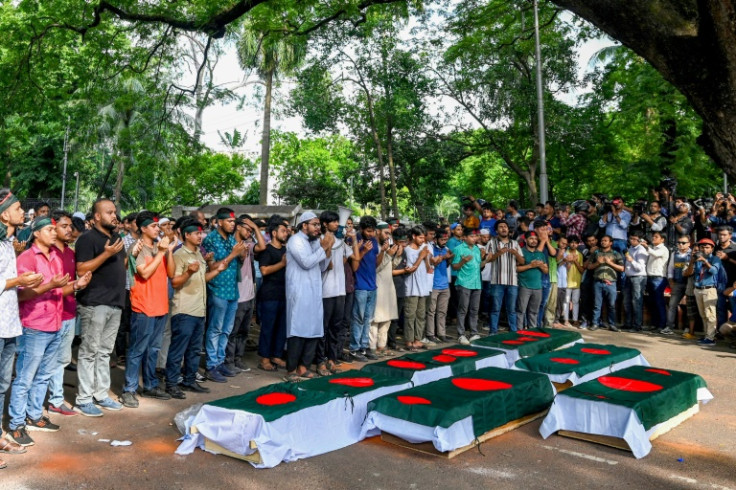
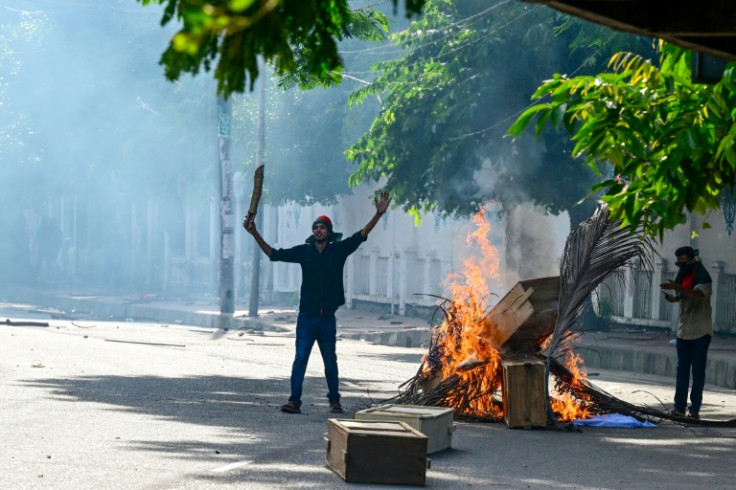
© Copyright AFP 2024. All rights reserved.






